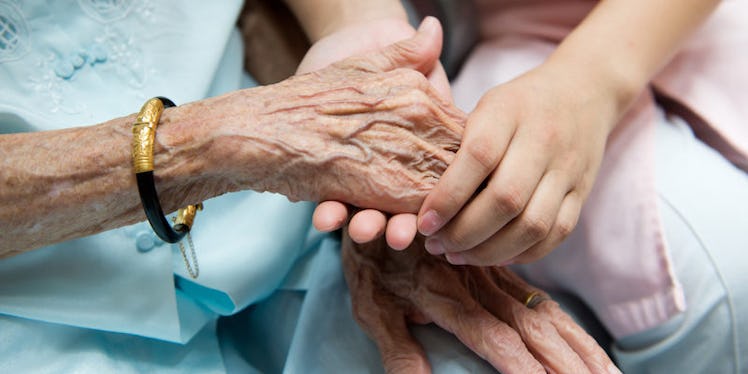
Our Life Expectancies Just Dropped For First Time Since The 1993 Aids Crisis
The year 2016 has obviously scared the heck out of us in multiple unforgiving ways, but it just got a little bit more terrifying -- so brace yourselves.
It's been reported by BBC that the National Center for Health Statistics proved life expectancy in the United States has declined for the first time in over two decades.
How's that for a wakeup call?
Apparently, statistics show life expectancy for ladies has dropped from 81.3 in 2014 to 81.2 in 2015, and 76.5 to 76.3 for the gents.
It's not a terribly huge change, but it's still a decline. In fact, it's the first time life expectancy declined since the HIV/ AIDS crisis in 1993, and we're pretty shaken by that statistic.
Jiaquan Xu, an epidemiologist at the NCHS, talked to AFP news agency about the shocking death rates that took place in the year 2015.
He said,
This is unusual. 2015 is kind of different from every year. It looks like much more death than we have seen in the last few years.
That's... um, unsettling.
Before you freak out, rest assured this life expectancy drop means the average woman is living one month less on average, and men are living two months less on average.
Again, not a huge change to be alarmed by, but it's still something we should all be aware of.
According to BBC, there are a few factors to blame for the age drop: heart disease, dementia and accidental infant deaths.
Heart disease is reportedly the biggest culprit for deaths, among various other health-related issues such as chronic lower respiratory diseases, stroke, unintentional injuries, diabetes and kidney disease.
In other words, it's time to put down the McDonald's and take start eating your greens, ya'll.
Infant deaths, on the other hand, are allegedly being caused by "accidental suffocation and strangulation in bed," according to Jiaquan Xu.
However, these deaths have also been related to other factors like addiction, which has become a rising epidemic in the recent year.
Citations: BBC